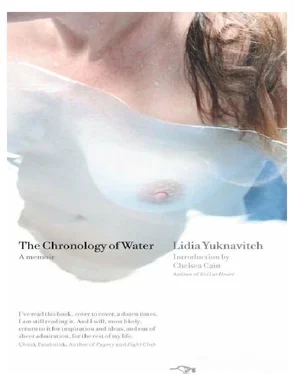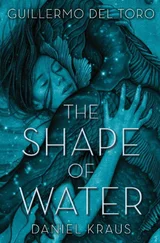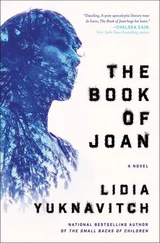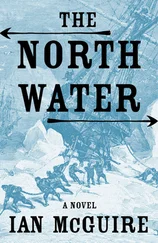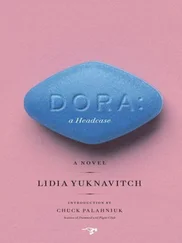Lidia Yuknavitch
The Chronology of Water
This book is for-and written through — Andy and Miles Mingo.
IF YOU HAVE EVER FUCKED UP IN YOUR LIFE, OR IF THE great river of sadness that runs through us all has touched you, then this book is for you. So thank you for the collective energy it takes to write in the face of culture. I can feel you.
Energy never dies. It just changes forms. My beloved friends and mentors Ken Kesey and Kathy Acker are in the space dust and DNA and words.
Thank you Rhonda Hughes, editrix extrodinaire, as well as all the people at Hawthorne Books for believing in my writing. Bold Swimmers.
Thanks to Lance and Andy Olsen, my artheart heroes. And to Ryan Smith and Virginia Paterson, through the miles.
To Diana Abu Jaber, thank you for saying to me twenty years ago about a single story, “I think this might be a book.” It just took me a really long time to get it.
Thank you to the less than Merry Pranksters, particularly Bennett Huffman: rest peacefully, Bennett, you were the best among us, chaotic, beautiful stardust.
A great waterfall of thanks to Michael Connors for, well, everything, and to Dean Hart, for making the everything possible. Thank you for mercifully loving all the me’s I have brought to your doorstep.
Thank you to the greatest writing group in the history of ever: Chelsea Cain, Monica Drake, Cheryl Strayed, Mary Wysong, Diana Jordan, Erin Leonard, Suzy Vitello, and Chuck Palahniuk. And Jim Frost.
Special thanks to Chelsea for writing the introduction, and to Chuck for inviting me in, and to Chuck and Chelsea for reading early versions of this manuscript and helping me to not lose my marbles. Well at least sometimes.
I would not be around to write this book had it not been for my sister going ahead of me. To Brigid who was Claudia: how to thank you for the lifeline of your enduring love. You have carried me well. Sister. Friend. Other mother. Poet of most tender thunder.
And though words suddenly seem remarkably puny, my pounding heart belongs to Andy and Miles — you make me able to be. Write. This love. Life. I didn’t know.
Introduction by Chelsea Cain
LIDIA AND I ARE IN THERAPY TOGETHER.
That’s what she calls it. Technically it is more of a writing workshop, at least that’s what the rest of us would like to think. It works like this. We meet once a week. Some of us bring work. We all critique it. Then someone goes into the bathroom and cries.
Lidia joined two years ago.
Chuck Palahniuk brought up the idea of inviting her. “She writes this literary prose,” he told us. “But she’s this big-breasted blond from Texas, and she used to be a stripper and she’s done heroin.” Needless to say, we were impressed.
I already wanted her to sit by me.
There was more. Chuck told us that some really famous edgy writer-I didn’t recognize her name, but I pretended that I did-had given a talk at a conference about the State of Sex Scenes in Literature and she’d said that all sex scenes were shit, except for the sex written by Lidia Yuknavitch. Maybe Chuck didn’t tell us that. But someone in the group did. I don’t remember. I think I was still thinking about the stripper thing. Areal-life ex-stripper in our writing group! So glamorous.
Yes, we said, invite her. Please.
She showed up a few weeks later, wearing a long black coat. I couldn’t see her breasts. She was quiet. She didn’t make eye contact. She did not sound like she was from Texas.
Frankly, I was a little disappointed.
Where was the big hair, the Lucite platform heels? The track marks?
Had Chuck made the whole thing up? (He does that sometimes.)
How was he describing me to people?
Lidia had pages. That first night she came. She shared work. If you are a writer, or really a human at all, you will recognize how terrifying this is. You show up and sit down with a group of strangers and share your art, having no idea how they will respond, these assholes marking up your pages with their pens, judging you, leering at your tits.
She read us the first chapter of her novel The Small Backs of Childre n (due out with Hawthorne Books next year), while we all followed along with the copies she’d passed out. They say that alcoholics remember their first drink, that lightening feeling in your body that says yes-yes-let’s-feel-this-way-all-thetime — well, I will always remember the first time I heard Lidia Yuknavitch read.
I thought, this is how writing is supposed to be. I thought, man oh man, she’s good. I thought, I want that.
Literally. I wanted that chapter.
See the protocol at workshop is that we bring in pages, hand them out, read them out loud, and then go around the table for comments. After that, we collect the pages, which by then are theoretically covered with highly useful notes. Work does not leave the room. We never take home anyone’s pages. They don’t let scientists take home uranium in their pockets after a day at Los Alamos. That’s the deal.
But I wanted that chapter. I wanted to take it home so I could read it again and again. I’d never felt like that about anyone else’s work, ever.
I considered stealing it.
I could pretend to put it in the stack as the pages were collected, but then palm it off the table onto my lap and slip it onto the floor into my open purse. I didn’t want to ask her for it. She already thought we were all perverts, the way we kept checking out her chest.
I decided to play it cool. We went around the table, all of us giving feedback, happy, exhausted, delighted that she didn’t suck.
I tried not to blather, counting on the fact that there would be more, more writing, more Lidia.
It worked. She came back. The next week. Amazing!
She workshopped that book, and this memoir. And the more I’ve learned about her, the more in awe I am.
To start, she isn’t really from Texas. She just went to college there, which is a totally different thing. She does have nice knockers. For the other stuff, you’ll have to read the book.
I’m just looking forward to getting a copy I can keep.
Tell all the Truth but tell it slant -
— EMILY DICKINSON
Happiness? Happiness makes crappy stories.
— KEN KESEY
Here lies one whose name was writ in water.
— JOHN KEATS
THE DAY MY DAUGHTER WAS STILLBORN, AFTER I HELD the future pink and rose-lipped in my shivering arms, lifeless tender, covering her face in tears and kisses, after they handed my dead girl to my sister who kissed her, then to my first husband who kissed her, then to my mother who could not bear to hold her, then out of the hospital room door, tiny lifeless swaddled thing, the nurse gave me tranquilizers and a soap and sponge. She guided me to a special shower. The shower had a chair and the spray came down lightly, warm. She said, That feels good, doesn’t it. The water. She said, you are still bleeding quite a bit. Just let it. Ripped from vagina to rectum, sewn closed. Falling water on a body.
I sat on the stool and closed the little plastic curtain. I could hear her humming. I bled, I cried, I peed, and vomited. I became water.
Finally she had to come back inside and “Save me from drowning in there.” It was a joke. It made me smile.
Little tragedies are difficult to keep straight. They swell and dive in and out between great sinkholes of the brain. It’s hard to know what to think of a life when you find yourself knee-deep. You want to climb out, you want to explain how there must be some mistake. You the swimmer, after all. And then you see the waves without pattern, scooping up everyone, throwing them around like so many floating heads, and you can only laugh in your sobbing at all the silly head bobbers. Laughter can shake you from the delirium of grief.
Читать дальше
